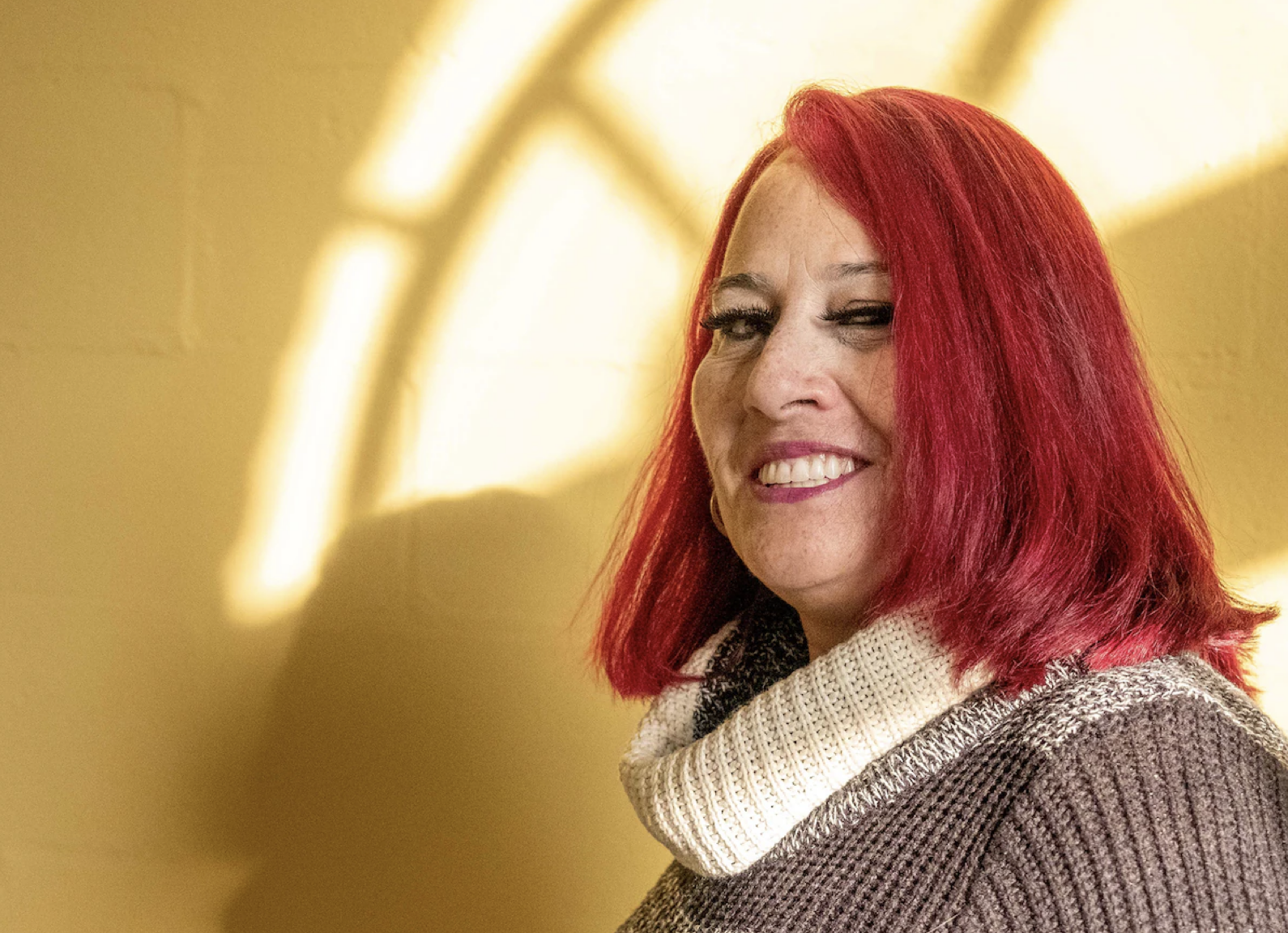Friendship Place helped a survivor of abuse turn her life around
Perspective by John Kelly
Columnist
December 6, 2022 at 1:12 p.m. EST

Rachelle Ellison lived on the streets of Washington for 17 years before finding help at Friendship Place, a District charity and a partner in The Washington Post Helping Hand. (John Kelly/The Washington Post)
Rachelle Ellison could have been broken beyond repair. Who would expect the fragments of her body and her soul to ever be put back together again?
But here she is, sitting next to me, telling her story with candor and pride.
“Whoever would have thought I would make it this far?” says Ellison, 54. “Because I didn’t.”
As a child, Ellison suffered abuse from her parents — verbal and physical from her mother, sexual from her father. At 15, she moved from Florida to Annapolis to enter a program designed to prepare her to live on her own.
“I was in therapy, but I would rather drink and smoke weed,” Ellison says.
She became emancipated, then pregnant. Then pregnant again.
In 1993, Ellison moved to the District. She’d married by then, but her husband was arrested for dealing drugs and sent to prison. She handed her children to family and foster care, then took off.
“For the next 17 consecutive years I was homeless,” Ellison says. “I was on drugs, mentally unstable. …. I never went in shelters. I slept on park benches and concrete, always me and a blanket at Freedom Plaza, on Pennsylvania Avenue near the post office, at Franklin Park.”
Ellison tells me two things I’ve heard time and time again from people who have lived on the streets: She felt she was invisible to most people (“People walk by like they don’t even see you”), and she found community among the unhoused.
“People become like a family, a homeless family,” she says. “You go to sleep with nothing, wake up with nothing, but share everything you have.”
One thing that’s shared is information, which is how Ellison wound up at Friendship Place, a nonprofit that operates a drop-in day center on Wisconsin Avenue NW. It’s a place to come in out of the rain, clean up, do laundry, check mail. She started going every day.
“I’d get the 30 bus up here,” Ellison says. “It was a long ride, but I didn’t care. I was going to a place where somebody knew my name. … It was time away from the monotony of getting high and feeling mentally unstable.”
At Friendship Place, Ellison was able to make appointments to meet with doctors and mental health counselors from Unity Health Care. She came to a realization: “The traumas I was incurring being homeless overpowered the traumas that I came to the street with.”
With therapy and medication, Ellison found a way to control those traumas. She became stable enough to embrace a 12-step program and has been sober for nearly nine years. She graduated from high school, earned an associate’s degree and has worked as a peer counselor with the District’s Department of Behavioral Health. With the help of another District charity, Pathways to Housing DC, she found housing and lives now in an apartment in Northwest.
My quick recitation makes it sound easy, but it couldn’t have been. Ellison could have continued on a path with an all-too-predictable end. I ask how she did it.
“It was an inside job,” she says, meaning she had to muster the strength and courage to accept the help Friendship Place was offering.
What’s more, Ellison says, “Getting high is actually a 9-to-5 job. I became a professional scam artist in the street. I was talking to people [to get money]. Once you got finished, you had to find the good drugs. Then I had to find a safe place to get high. It was a job.”
Ellison has made great strides in her relationships with her children, though some pain remains. She sees herself not as a victim, but as a survivor.
“Friendship Place made me feel human,” Ellison says. “When you feel human you start to believe that maybe I can see myself clean, maybe I can see myself working. I knew I wanted all these things.”
Ellison pulls out her phone to show me a photo taken in the depths of her addiction. Her skin is gray, her eyes are lifeless, her teeth are chipped. She looks like the ghost of the woman who sits before me now.
“I look younger as I got older,” she says, still marveling that she was able to grow older at all.
Friendship Place is a partner in The Washington Post Helping Hand, our annual fundraising drive. Your gift can help set others on the path Rachelle Ellison took. To contribute online by credit card, visit posthelpinghand.com. To donate by mail, send a check to Friendship Place, 3655 Calvert St. NW, Washington, DC 20007.






